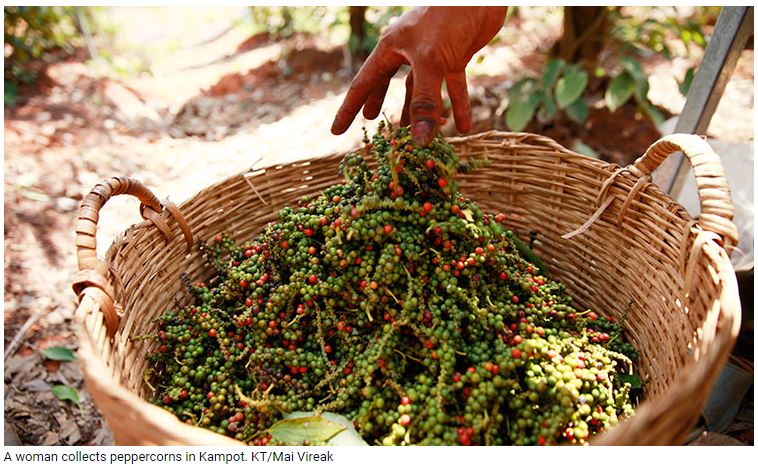Cambodia: Pepper policy in the making
To boost the price of the commodity and diversify the market, a national strategy for the pepper sector is on the way, a government official announced yesterday.
The policy will be drafted by the ministries of Commerce and Agriculture with the help of the International Finance Corporation (IFC) and the Cambodian Pepper and Spices Federation.
Speaking yesterday at a workshop on the pepper strategy, Mao Thora, Secretary of State at the Ministry of Commerce, said the strategy will be included in the Trade Sector-Wide Approach Policy 2019-2023 (Trade SWAP2019-2023).
Its goals are to boost and stabilise prices and enhance market access, he explained
“We have to diversify the market for our pepper; we can’t continue to depend on Vietnam and Thailand.
“The pepper policy will clearly establish the role of each government and private sector entity,” Mr Thora said.
Song Saran, CEO of Amru Rice and newly appointed chairman of the Cambodian Pepper and Spices Federation, said the national pepper strategy will help industry players assume new roles in the supply chain.
“We have to wean ourselves from our dependency to Vietnam and Thailand for processing the pepper. We have to be a player across the entire value chain, rather than merely suppliers,” he said.
A recent report from the Ministry of Agriculture sheds light on the country’s dependency on neighbouring Vietnam for pepper exports. Last year, national production was 21,000 tonnes. Of that, Vietnam absorbed about 16,000 tonnes, according to the report.
2,000 tonnes were consumed internally, while only 2,700 tonnes were sent to countries other than Vietnam.
“Lacking investment in pepper processing and a holistic value chain approach, all our surplus is exported to Vietnam, the world’s biggest pepper producing country. This is procured by middlemen who do not even need to offer realistic prices,” Mr Saran said.
“We need more involvement from the government to ensure that all issues are solved and push our pepper to the international market.
“We have to continue moving forward and producing sustainable, traceable, and quality pepper. We need to find new markets for our producers and link them to buyers,” Mr Saran added.
Ngoun Lay, president of the Kampot Pepper Promotion Association, said the national pepper strategy will help widen the market and push prices up.
Source: https://www.khmertimeskh.com/50556399/pepper-policy-in-the-making/


 Thailand
Thailand




